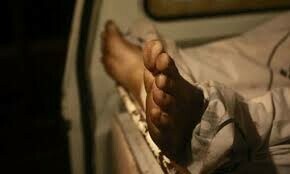LAHORE: Data on 162 cases of conversion of minor girls from Punjab and Sindh explain the vulnerability of minority girls and women to various gender crimes.
Data from 2013 to 2020 show that the crime took place in all provinces and in all minority communities.
At least 46 per cent of the ‘converted’ females were below the age of 18, while the age of 37 per cent was not mentioned. Only 16 per cent of females were more than 18 years.
Executive Director of the Centre for Social Justice Peter Jacob gave these statistics at a conference on protection from the forced conversion on Tuesday. A spike was seen in 2019, while Bahawalpur district topped the list for its cases of reported conversions (21), followed by Karachi and Lahore.
Justice Mehta Kailash Kohli, former Balochistan High Court chief justice said that legal protection for victims of forced conversions must be arranged under FIRs under the Child Protection Act because it was essentially a case of child marriage. The cases of abduction would be quashed in high courts.
Dr Heera Lal Lohano, a consultant on emotional and behavioral health, said faith conversion and marriages of minor girls pose serious implications to psychological well-being of the victims, families, and society at large.
Pushpa Kumari, member of the Sindh Human Rights Commission, said minorities’ susceptibility to forced conversions was very much related to social and economic vulnerability.
Lawyer Bhagwandas said that several legal issues were also faced by the victims of forced conversions, especially regarding custody of the minors.
Bishop Alexander John Malik said the abduction was only one part of the forced conversion.
“The conversion is the second part to legitimise the abduction, then comes marriage and the fourth part is the trafficking of women,” he said.
Saquib Jilani said he was part of a two-member committee that had made a draft to ensure that all bodies must have a statute and that the cabinet’s decision to make the toothless minorities’ commission was a violation of CJP Jilani’s suo motu action of 2004.
Rights lawyer Hina Jilani also spoke.
Published in Dawn, December 9th, 2020













































